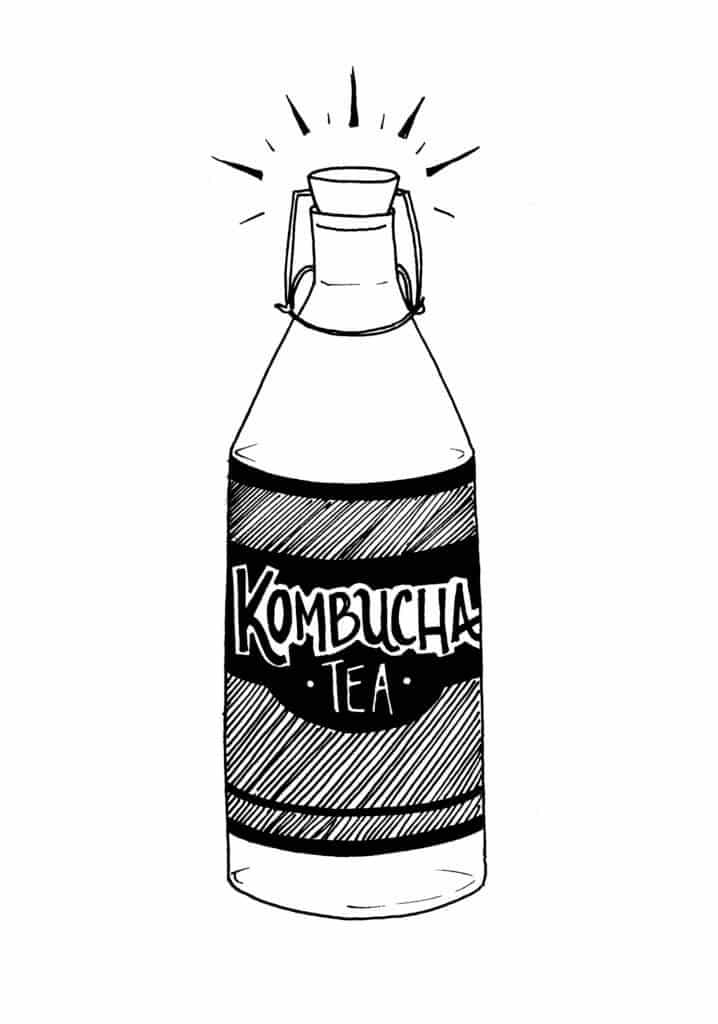Debunking the health benefits of the increasingly popular drink kombucha
Across the Mount Allison campus, the fermented, slightly alcoholic tea known as kombucha has been continuously rising in prevalence.
According to Live Science, kombucha’s origin dates back to 2,000 years ago in China – which leads to curiosity about how it became a modern, trendy beverage at a Canadian university in the small town of Sackville, N.B. A degree of kombucha’s current popularity can be attributed to the rumours of its magical health benefits, improving its consumer’s health with a mere sip.

Despite claims regarding kombucha’s beneficial effect on the digestive system, these statements have not yet been validated. Erin Balodis, a naturopathic doctor, explained that there has not been sufficient research done on the exact effects on kombucha. “[Kombucha is] often [advertised] as being beneficial for gut health because it contains probiotics,” she said. “However, while it does contain probiotics, there are no studies directly showing kombucha is good for gut health.”
Nathaniel Benjamin, a third-year sociology major, started drinking kombucha during last year’s exam period: “I had never heard of it before, but when I was at the grocery store, I saw it and was just curious to see what it tasted like, and I’ve been drinking it ever since then.”
In spite of the unfounded statements about kombucha’s effects on gut health, students have experienced a change in their digestion after drinking it. Benjamin continues to drink kombucha for the change he felt after he initially tried the beverage. “I noticed I wasn’t feeling bloated throughout the day when I’d drink it in the morning,” he said.
Balodis recommended kombucha as a healthier option to other fermented beverages with higher caloric content. “Similar to other fermented foods like sauerkraut, or kimchi, I think kombucha when consumed in moderation can be a part of a healthy diet, and is an alternative to alcoholic drinks, or pop,” she said.
Emma Snowdon, a fourth-year biology student, first tried kombucha in her first year, and has continued to drink it throughout her four years at Mt. A. “I started drinking [kombucha] because I kept seeing it at the Cackling Goose,” she said, “and then I saw a friend on Instagram post about how much they loved it, so I decided to give it a try.”
Similar to Balodis, Snowdon said she uses kombucha as substitution for other caffeinated beverages. “Kombucha makes me feel more awake, and doesn’t really weigh you down like a can of soda would,” Snowdon said.
Current research is developing to examine the exact effects kombucha has on our health.
“Benefits [of kombucha that are] often noted [include] possible anti-cancer, anti-infection, and anti-diabetic effects,” Balodis said. “However, the research to back the widespread health claims are severely lacking.”
The absence of sufficient evidence that kombucha benefits our health demystifies the beverage’s transformative reputation and opens the door to further investigation.





